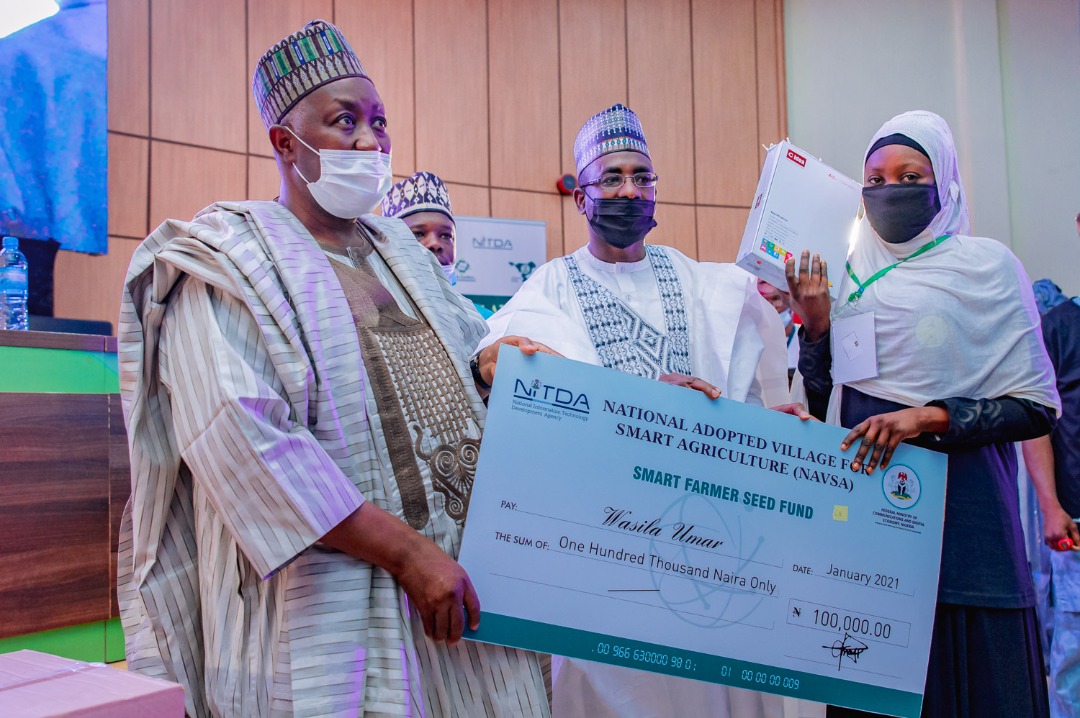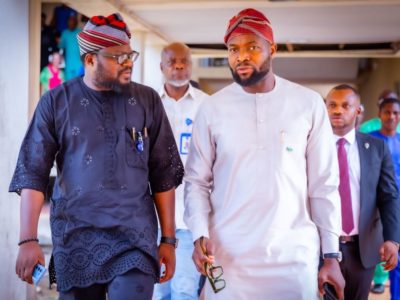Jigawa State Governor, Alhaji Muhammadu Badaru Abubukar, has tasked Nigerian youths on the need for critical thinking and ability to leverage digital technologies to solve Nigeria’s economic with security challenges and get the country moving forward.
Abubukar spoke at the recent 1st Jigawa Innovation Summit with the theme: ‘Creating a Viable Innovative Ecosystem for Economic Development’ organised by the state government in collaboration with National Information Technology Development Agency (NITDA) and Youth Coalition for Development (YCD), an NGO focusing on engaging young for a better Nigeria.
Critical thinking allows Nigerian youths to be more opened to the fundamental challenges in the Nigerian environment and how those challenges could be transformed into opportunities for social and economic transformations, said Abubukar at the function where the Minister of Communications and Digital Economy, Dr Isa Ali Ibrahim Pantami, commended the state for its persistence in driving policies inclined to achieving digital economy.
Critical thinking helps to convert challenges to businesses, create jobs, and resolve social problems; the more problems are being solved, the more income can be generated, the governor added to an audience of largely young Nigerians. In attendance at the event were IT experts, academics, administrators, and private sector entrepreneurs.
His words: “The oil economy is almost over because of what is happening around the globe – electric cars are on the rise, solar energy is becoming cheaper, wind energy is becoming more supportive; currently, there is an increasing drop in the demand for [fossil] oil, national income will continue to decline and that will affect all the states of the federation, including Jigawa.
“We have to look at the areas where we have competitiveness and see how best we can make our economy work through those areas. Like I have always said, we can achieve this largely in agriculture. We have vast land and water for irrigation in Jigawa. We will continue to focus on how to develop Agriculture and its value chain.
“I want to challenge this summit to see how best we can to improve in what we are doing and how best we can to create jobs around the value chains in Nigeria digitally.
“We have Informatics Kazaure that produced so many IT professionals in the country. So I expect this summit to bring to our table, advice in our educational arena so that we can do more in developing our youth by making them employers, not just employee.”
Dr Pantami while noting the willingness of Jigawa state to support the effort of the federal government at developing indigenous digital economy in the country, said his ministry is opened to further collaboration at developing digital capacity in young Nigerians.
According to him, the high rate of unemployment in the country motivated the Ministry of Communications and Digital Economy to think outside the box by focusing more on creating potential employers rather than potential employees.
He said: “If you enrolled people in university and they graduated without sufficient skills, they will never be self-reliant; they will always go around looking for jobs. But when you provide digital skills for your citizens, they will be employers of others, which Jigawa Innovation Summit should also focus on.
The minister cited Jeff Bezos, owner of Amazon, second richest person in the world, as the perfect example a potential employer should emulate. Bezos has millions of people working under him.
He also cited how the Netherlands used digital technology to boost its agricultural activities despite having lesser landmass compare to some states in Nigeria. He added that if Jigawa state deploys digital innovation to agriculture it will go a long way in creating many jobs and generating revenue for federal and state governments.
While keynoting the event, Director General, National Information Technology Development Agency (NITDA), Mallam Kashifu Inuwa Abdullahi, recalled that the journey to making the Innovation Summit happen was more exciting than the theme of the event itself because the event was conceived January last year when Dr Pantami commissioned the Hadejia community IT centre.
his words: “while delivering his keynote address at the commissioning, the honourable minister explained potential benefit of digital economy in our country and Jigawa state in general. Our governor showed interest in Jigawa’s readiness to embrace the initiative, and the honourable minister responded positively by directing me to engage all the stakeholders to ensure jigawa benefit immensely from digital economy.”
“Whatever the state government, ministry and NITDA are doing are in line with President Muhammadu Buhari’s economic diversification agenda, therefore all the credits should go to Mr. President, because he campaigned before election and after he was voted to lead the country, he appointed my boss and mentor as minister, who also recommended me for this position.”
He explained that innovation has been generally defined as the processing and taking idea from inception to impact, adding Abdullahi said NITDA’s agenda for IT innovation and also the policy drive of Governor Abubakar for Jigawa are all geared at creating opportunities within a zero-oil revenue scheme.
“Jigawa State has a lot of potentials in terms of agricultural resources. Jigawa is the largest producer of dates, hibiscus and gum Arabic in Nigeria, and largest producer of sesames in the whole of Africa. The state also stands third in rice production, and we are utilising less than 10% of our arable land. Recently, Governor Abubakar negotiated with stakeholders from Mexico to boost hibiscus production, which is a big plus for us as a nation.”
“All these can be achieved through digital technologies; this is why we are building IT centres across the country. So far, we have established 18 IT community centres out of 27 local governments, and we will build the remaining ones. This is to prepare our future generation and create job opportunities, not only government jobs, for youths to become self-reliant. “We are coming with strategy where the state government can provide enabling environment that will unlock opportunities. In some countries, government job is the last resort, because you will make more money in business than in government; you will have more time































